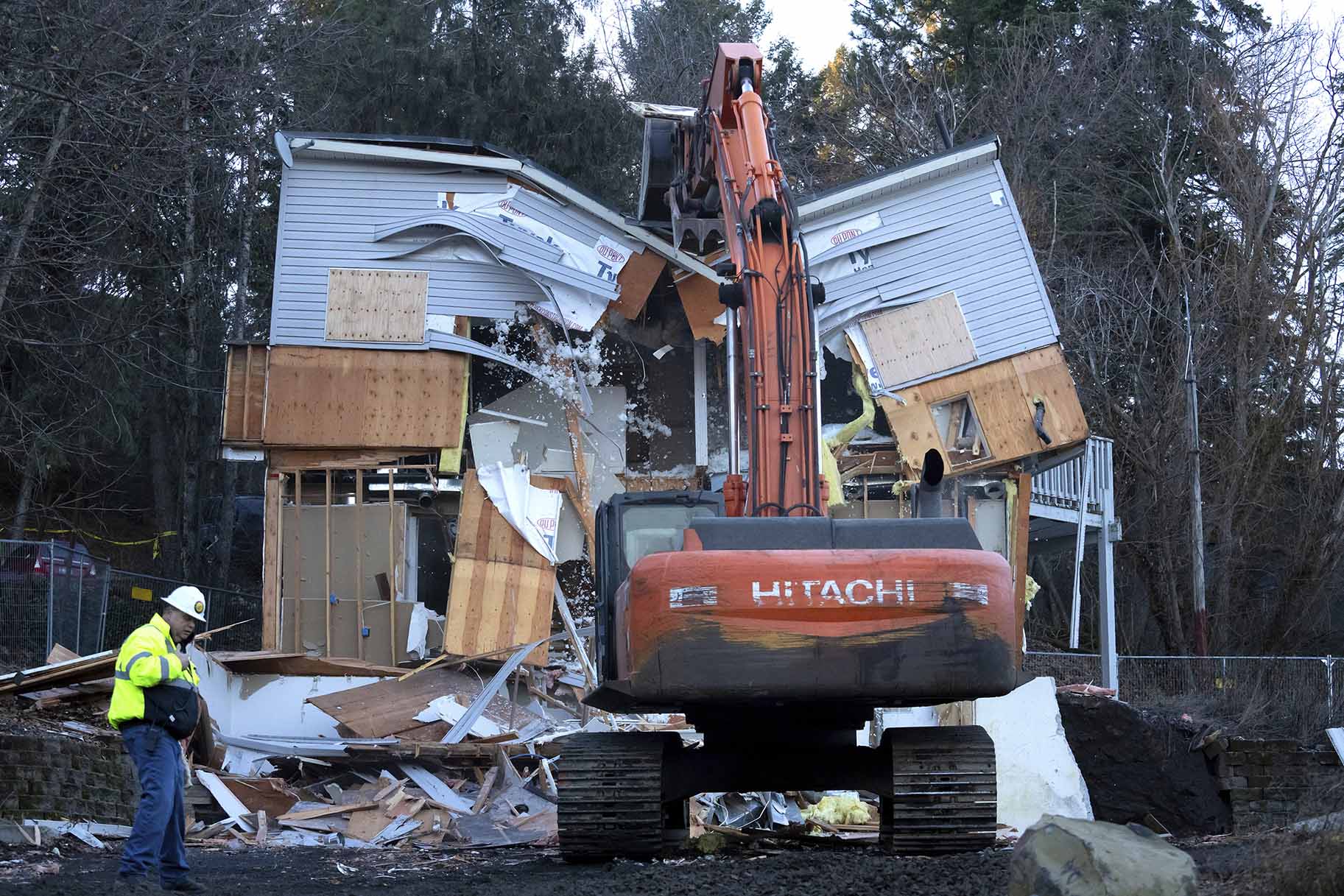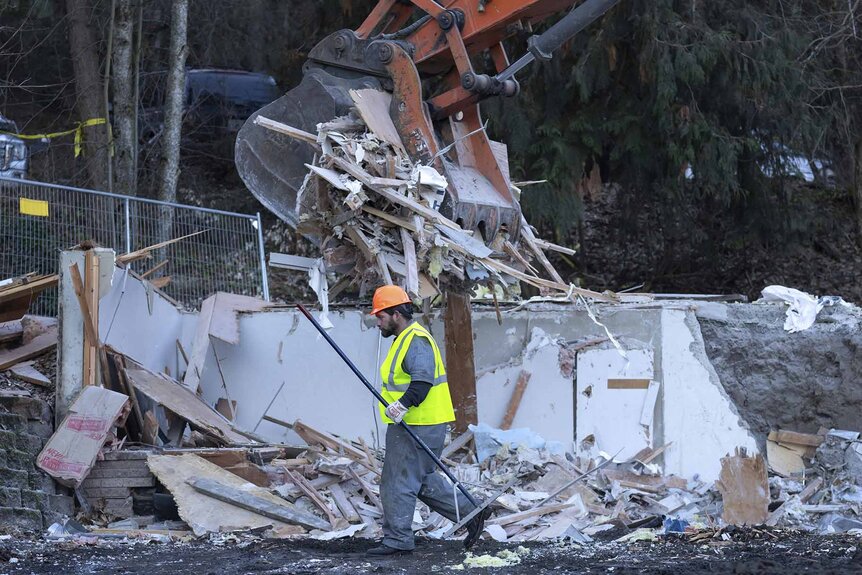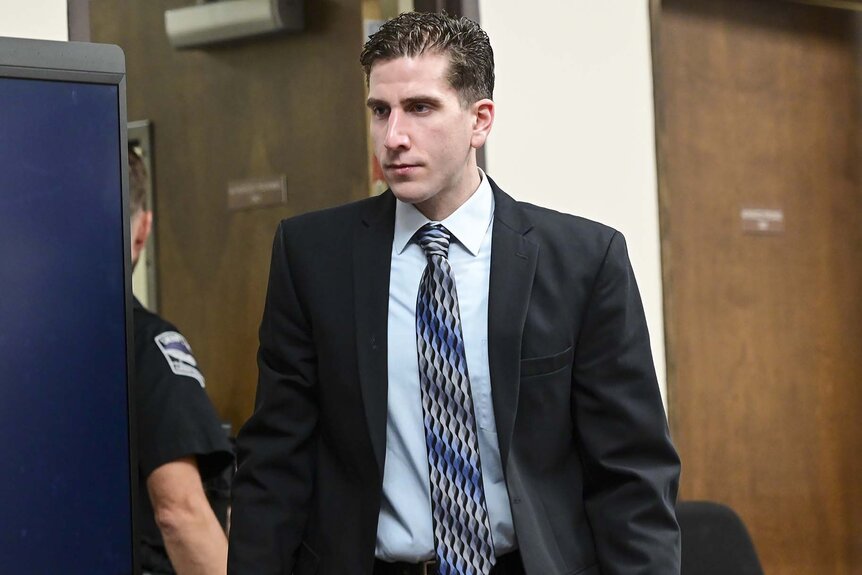Create a free profile to get unlimited access to exclusive videos, breaking news, sweepstakes, and more!
House Where Four University of Idaho Students Were Killed is Demolished
Students Ethan Chapin, Xana Kernodle, Madison Mogen and Kaylee Goncalves were fatally stabbed in the home in November 2022.

The house where four University of Idaho students were killed last year was demolished Thursday, marking an emotional step for the victims’ families and a close-knit community that was shocked and devastated by the brutal stabbings.
The sounds of construction equipment pierced the early morning air as an excavator started tearing down the front part of the house. The former walls formed a large pile of crushed and smashed wood on the ground as debris was picked up and loaded into a dump truck. A few onlookers joined dozens of members of the news media.
RELATED: Where Does the University of Idaho Murders Case Stand One Year Later?
After about three hours, the home was fully demolished and its concrete foundation had been broken up. Multiple dump trucks continued to remove debris from the site.
The owner of the rental home near the university campus in Moscow, Idaho, donated it to the university earlier this year. It has since been boarded up and blocked off by a security fence. Students Ethan Chapin, Xana Kernodle, Madison Mogen and Kaylee Goncalves were fatally stabbed there in November 2022.
School officials, who in February announced plans to raze the house, view the demolition as a key step toward healing and finding closure, university spokesperson Jodi Walker said.
“It’s incredibly powerful and emotional to see it come down,” she said as she watched the demolition. “We’ve turned into that next chapter, whatever that next chapter is, and that definitely is a bit of a relief.”
Moscow resident Lilly Topping, who lives on a neighboring street and could see the house from her window, also said she felt relieved as she passed by the demolition. She said she had felt unsafe for a time after the killings, and her grandparents gave her a door stopper to place underneath her door knob as a precaution against break-ins.
“You could just feel the presence of sadness,” she said. “It was just a tragic event, and I feel like we need to renew everything.”
The fence that had surrounded the property was set to be reinstalled Thursday night and will stay up for about a week, until contractors return to grade and level the site so that it can be planted with grass at some point, Walker said. There are currently no other plans for the site, though the university may revisit that in the future, she said.
Some of the victims’ families have opposed the demolition, calling for the house to be preserved until after the man accused of the slayings has been tried.
Bryan Kohberger, a former criminology graduate student at Washington State University in neighboring Pullman, Washington, has been charged with four counts of murder. A judge entered a not-guilty plea on Kohberger’s behalf earlier this year.
The concerns from victims’ families previously prompted the university to push back its timeline for demolition. After initially announcing the plan in February, the school in July said it would pause the process and revisit it in October.
“On the one hand, some people want it taken down. It is a constant reminder of the heinous acts that went on inside it. It is also a place that continues to draw unwanted attention from media, YouTubers and others,” university President Scott Green wrote in a July memo. “On the other hand, it elicits deep emotional responses from those who are working through grief and who fear that its destruction could impact the court case. We hear all these arguments, take them seriously and weigh them against the greater good for our university.”
Prosecutors, who hope to try Kohberger next summer, told university officials in an email that they don’t anticipate needing the house any further, as they were already able to gather measurements necessary for creating illustrative exhibits for a jury. They added that a jury visit to the site wouldn’t be authorized given that the current condition of the house “is so substantially different” than at the time of the killings.
RELATED: Dad of Murdered University of Idaho Student Says She "Tried to Get Out of That Situation"
The Latah County prosecuting attorney’s office declined to comment, citing a gag order from an Idaho judge that restricts what lawyers in the case can say to the news media.
Kohberger’s defense team was given access to the home earlier this month to gather photos, measurements and other documentation. And in October, the FBI gathered at the house to collect data that could be used to create visual aids for jurors at the upcoming trial.
Kernodle, Mogen and Goncalves lived together in the rental home just across the street from campus. Chapin — Kernodle’s boyfriend — was there visiting on the night of the attack. All of them were friends and members of the university’s Greek system. The killings left many of their classmates and residents of Moscow reeling with grief and fear.
Moscow is a rural farming and college town of about 26,000 nestled in the rolling hills of north-central Idaho, about 80 miles southeast of Spokane, Washington.





























